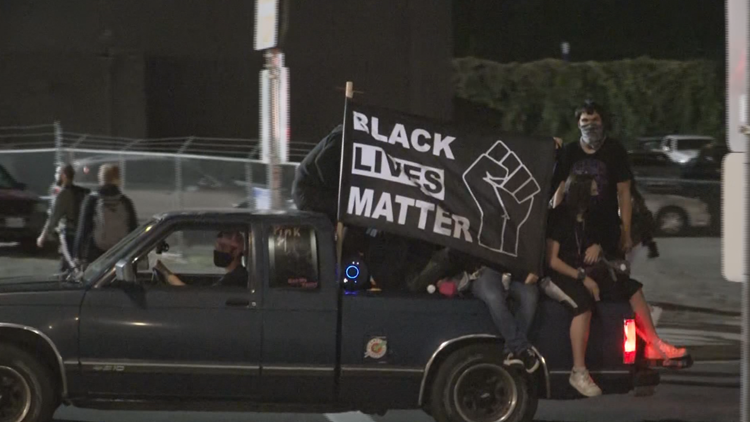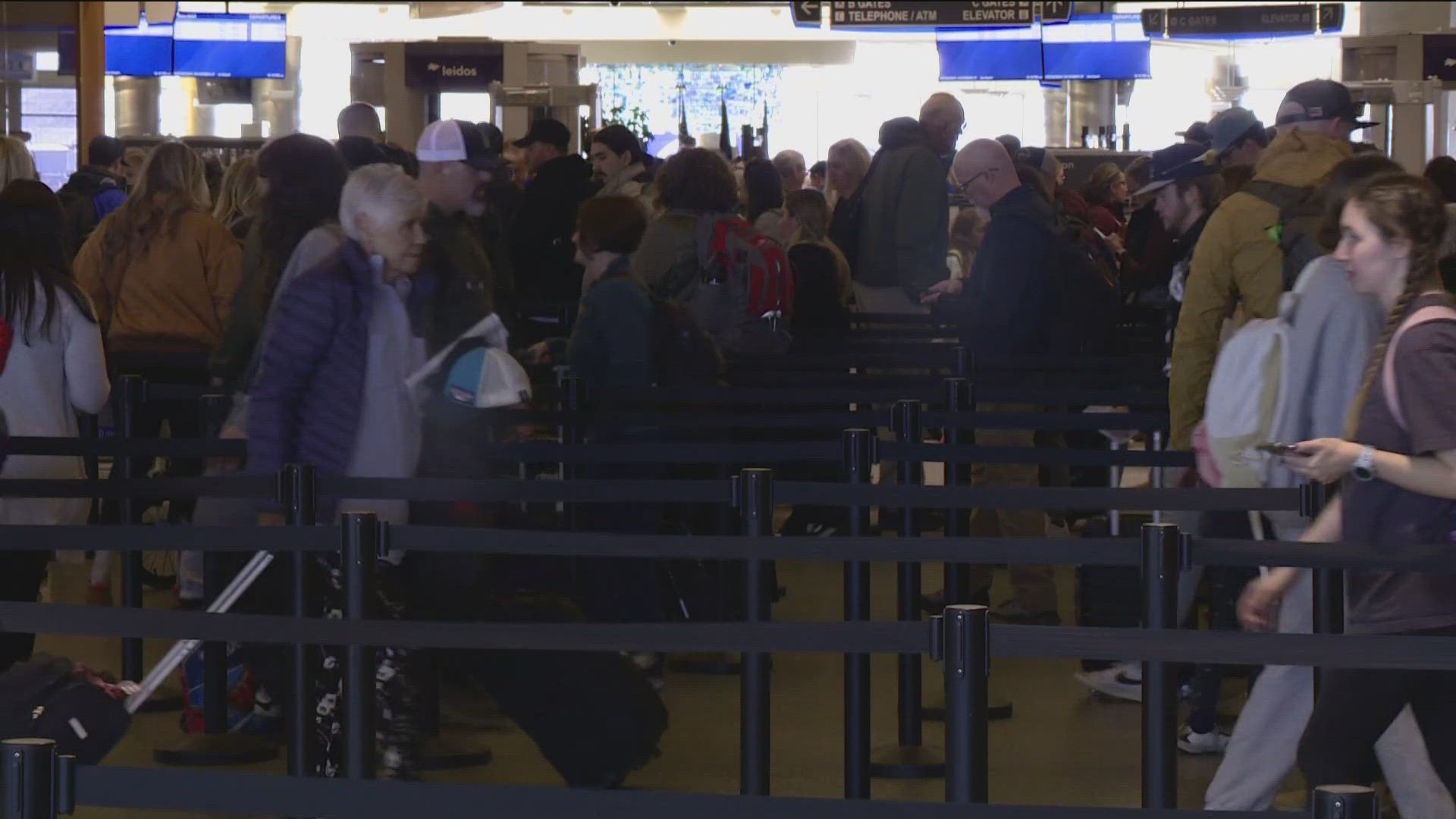PORTLAND, Ore. — Late Saturday night, Portland Police arrested 26 demonstrators who were part of a small group that met up at Alberta Park around 9:30 p.m. before heading to a police center.
The marchers gathered outside of the Portland Police Bureau's North Precinct near Northeast Martin Luther King Jr. Boulevard and Northeast Killingsworth Street.
According to independent journalists reporting from the small protest, police only gave one warning before beginning a mass arrest.
Freelance journalist Justin Yau said some of the arrestees were marked medics.
Another freelance journalist, Alissa Azar, posted video to her Twitter account of police dispersing press, despite it being unlawful to do so due to a temporary restraining order in place. The officer can be heard saying, "I don't care what the TRO (temporary restraining order) says."
In a news release, Portland Police said they had arrested about a third of the group at the demonstration.
Sergio Olmos, a reporter with Oregon Public Broadcasting said the protest lasted only minutes. He reported that police arrested "almost everyone."
Olmos goes on to say that police warned protesters to get out of the street, where they did not have a permit to be walking. No unlawful assembly was declared.
"While the Portland Police Bureau is adhering to a directive not to use CS gas, the term 'tear gas" is required by state law to be included in such warnings," police said in a release.
Portland Police said the 26 people arrested from the protests were booked into the Multnomah County Detention Center, mostly charged with interfering with a police officer and disorderly conduct.
This is the 123rd day since protests in Portland began following the killing of George Floyd by a police officer. Floyd, a Black man in Minneapolis, told police he could not breathe while a police officer knelt on his neck for nearly nine minutes.
Demonstrators have marched in protest of police brutality against the Black community, racial inequality, the treatment of ICE detainees, and for the abolishment of prisons and police.
Before the Oregon wildfires in September, which blanketed the city in smoke for a few days, protesters had been in the streets for more than 100 consecutive nights.



